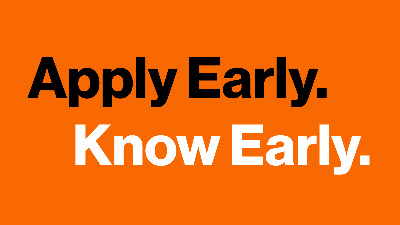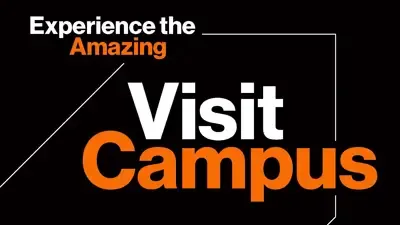Information Technology Associate in Science Degree

Information Technology
Associate in Science Degree
- RIT /
- Rochester Institute of Technology /
- Academics /
- Information Technology AS
Embark on a coding journey with an AS program in information technology. Turn lines of code into solutions.
Overview for Information Technology AS
The associate in science (AS) in information technology is an associate+bachelor’s degree program designed to prepare deaf and hard-of-hearing students to enter and successfully complete a bachelor's degree in RIT’s Golisano College of Computing and Information Sciences. This program is available for qualified deaf and hard of hearing students.
The associate of science degree in information technology is an Associate+Bachelor’s Degree Program, offered by RIT's National Technical Institute for the Deaf, that prepares students to enter and successfully complete a bachelor’s degree program. The program offers you unparalleled academic support and students strengthen their skills by taking courses taught by NTID faculty.
You start with an AS in information technology that provides you with the courses and credit you need to enroll in and successfully complete a bachelor’s degree program. Upon completion of your AS in information technology, provided you maintain a 2.8 or higher grade point average in the program, you will enroll in RIT’s Golisano College of Computing and Information Sciences, where you can choose to complete a bachelor’s degree in computing and information technologies or human-centered computing.
As a graduate of the Associate+Bachelor's Degree Program, you will be prepared for a variety of entry-level jobs including:
- Computing and Information Technologies
- Systems Administrator
- Information Technology Engineer
- Systems Engineer
- Web Developer
- DevOps Engineer
- Information Technology Specialist
- Operations Engineer
- Full Stack Engineer
- Software Engineer
- Network Technician
- Human-Centered Computing
- UX Designer
- Software Developer
- Product Designer
- UI Developer
- Web and Systems Programmer
- Technology Development Programmer
-
Apply for Fall 2026
First-year students can apply for Early Decision II by Jan. 1 to get an admissions and financial aid assessment by mid-January.
Curriculum for 2025-2026 for Information Technology AS
Current Students: See Curriculum Requirements
Admissions and Financial Aid
For the AS degree leading to bachelor’s degree (Associate+Bachelor’s program)
- 2 years of math required; students interested in engineering, math and science transfer programs should have three or more years of math.
- 1 year of science required; students interested in engineering, math and science transfer programs should have two or more years of science.
- Physics is recommended for students interested in engineering.
- English language skills as evidenced by application materials determine associate degree options.
Specific English and mathematics requirements and other recommendations
The following prerequisites are necessary for admission into the applied computer technology AS major:
- English: Placement into a First Year Writing course, such as FYW: Writing Seminar (UWRT-150).
- Mathematics: Entrance into NTID’s NMTH-275 Advanced Math.
- ACT (optional): The ACT middle 50% composite score is 18-21.
Financial Aid and Scholarships
100% of all incoming first-year and transfer students receive aid.
RIT’s personalized and comprehensive financial aid program includes scholarships, grants, loans, and campus employment programs. When all these are put to work, your actual cost may be much lower than the published estimated cost of attendance.
Learn more about financial aid and scholarships
Accreditation
Related News
-
October 7, 2022

NTID Career Fair helps deaf, hard-of-hearing students and alumni find co-ops, full-time jobs
More than 30 employers returned to the RIT/NTID campus since the start of the pandemic to recruit a new cohort of talented deaf and hard-of-hearing students and alumni for open co-op or full-time positions.
-
February 10, 2022

NTID alumnus stars in Oscar-nominated film ‘CODA’
RIT/NTID alumnus Daniel Durant ’11 (applied computer technology) is undoubtedly celebrating the latest accolades for the 2021 film CODA. Durant plays a major supporting role in the newly Oscar-nominated comedy-drama, a coming-of-age film.
Contact
- Brian Trager
- Department Chair
- Department of Information and Computing Studies
- National Technical Institute for the Deaf
- 585‑286‑5318
- brian.trager@rit.edu
Department of Information and Computing Studies














